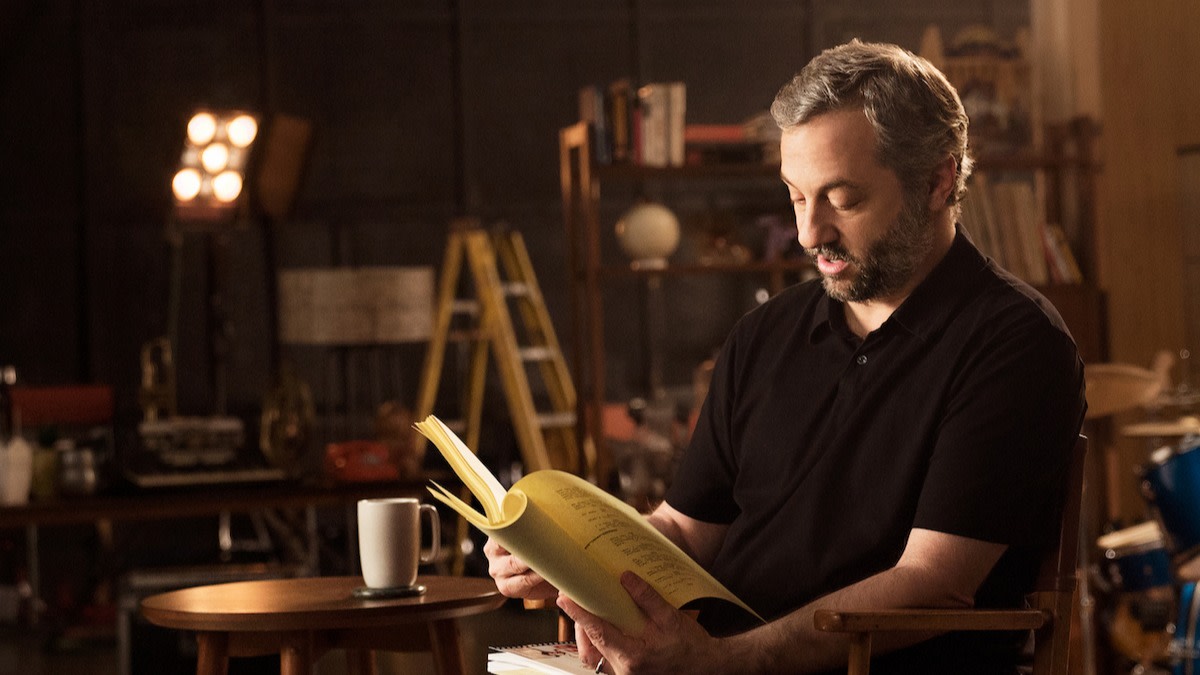Judd Apatow’s 4 Key Tips for Writing a Memorable TV Script
Written by MasterClass
Last updated: Jun 9, 2021 • 3 min read
Breaking into television is hard work. With competition from around the world, trying to get a job writing for your favorite Hollywood show requires a deep understanding of the craft, networking, and perseverance. Forging a career in television writing is a lengthy process, and there are a lot of ways to present a storyline and plenty of different writing techniques you can use to get there.
Learn From the Best
A Brief Introduction to Judd Apatow
Judd Apatow is considered one of the most sought-after comedy minds in the business. He has been closely associated with many of the biggest comedy films and hit television shows over the last decade and a half. Apatow has written and directed such films as The 40-Year-Old Virgin, Knocked Up, and Funny People. He directed Trainwreck and produced Superbad, Bridesmaids, Pineapple Express, and both Anchorman films. Apatow also executive produced the multi-award-winning HBO series Girls, Freaks and Geeks, Undeclared, The Ben Stiller Show, and co-executive produced The Larry Sanders Show. Most recently, Apatow released The Zen Diaries of Garry Shandling which chronicles the life and spirituality of comedian Garry Shandling.
Judd Apatow Shares Key Tips for Writing Comedy
Judd Apatow’s 4 Tips for Writing a TV Script
Regardless of the type of show you’re writing—whether it’s a half-hour sitcom pilot script, an hour-long TV drama spec script, or even a short format 10-minute show for digital streaming—there are strategic ways to think about your writing approach that can be more beneficial to the writing process. If your goal is to write your own television pilot or become a staff writer, check out Judd’s TV writing tips:
- 1. Breakdown your favorite TV shows. Read the scripts for your favorite original pilots and scripts for past or existing shows. Write down what happens from one scene to the next. Notice the structure, pacing, and timing of the events that occur, and see the different ways that TV shows present their A-story, B-story, and C-story.
- 2. Determine the end of the season. TV writers must come up with individual episodes as well as an arc for the entire season. Judd prefers to know the ending and work backward to the beginning. For Judd’s method, start at the end: Where does your main character wind up? And how do they wind up there? Asking yourself these two questions will help you begin to build your story blocks. You don’t need to know every single beat of every episode of the season, but at the very least knowing your main character’s arc will help you with story pacing, character development, and strengthen your overall story.
- 3. Explore your characters. A television series is a continuous exploration of the lives of your main characters. While feature screenwriting is more about finality and being satisfied (or unsatisfied) with how something ends, TV writing is more about resolving moments and daily problems, but still continuing them in a way that promotes character development. With a TV series, there is rarely a concrete resolution at the end of each episode or even season—more problems and challenges are coming, and that is what audiences expect.
- 4. Be open to notes. Sometimes when you let friends, family, actors, or other television writers read your script, they’ll come back with notes or critiques. While you may not agree with the solution they propose (if any), it’s worth it to look at the particular moment or scene that isn’t working for them—especially if you receive a couple of notes about the same moment. Writing is a vulnerable and often emotionally heavy process, which results in some writers feeling insecure about any criticism surrounding their work. Your first instinct may be to reject all notes, but keep an open mind—useful notes can elevate your work in ways you may not expect. Listen to all critiques and discern which ones are useful for your script. Good critiques can spark better ideas and help tighten your story. As the writer, you are the final arbiter of what stays and what goes. Listen deeply to constructive criticism, and implement ways to fix any confusing moments in your story.
Want to Learn More About Film?
Become a better filmmaker with the MasterClass Annual Membership. Gain access to exclusive video lessons taught by film masters, including Judd Apatow, Spike Lee, David Lynch, Shonda Rhimes, Jodie Foster, Martin Scorsese, and more.
